North Sea oil and gas ban: should Starmer U-turn on Labour pledge?
Environmental wing of the party at odds with unions over fossil fuels and path to a green future
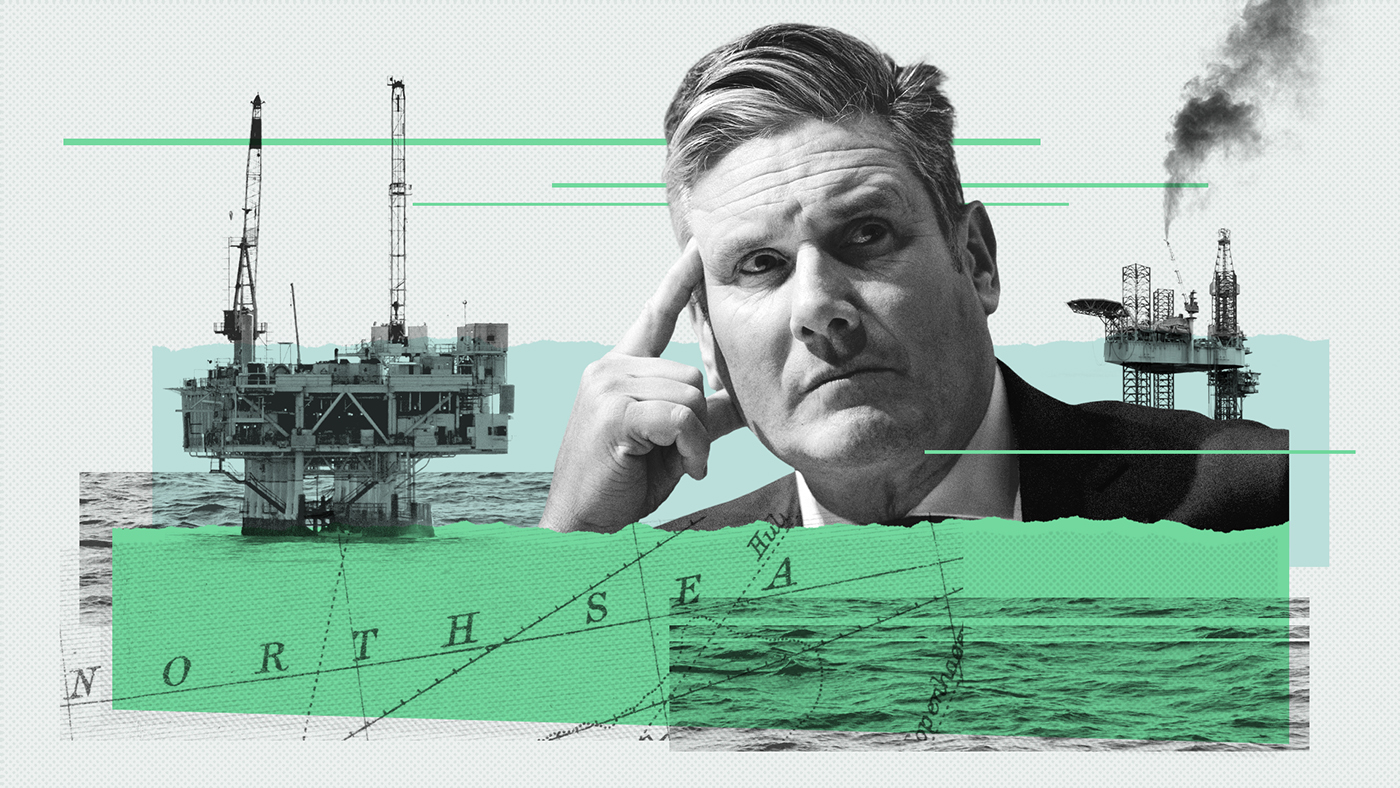
A free daily email with the biggest news stories of the day – and the best features from TheWeek.com
You are now subscribed
Your newsletter sign-up was successful
Keir Starmer has triggered an escalating row among Labour members and backers by pledging to block new domestic oil and gas developments in the North Sea in favour of investment in renewable sources.
The Labour leader is expected to formally set out his proposals to divest from fossil fuels in order to make the UK a “clean energy superpower” in the coming weeks. His “decision to turn off the taps in the North Sea is not expected to come without challenges”, said The Sunday Times.
But according to The Guardian’s political correspondent Kiran Stacey, Starmer has been urged to “stand firm” on the policy, in a letter signed by 139 organisations including environmental groups, trade unions and the Women’s Institute.
The Week
Escape your echo chamber. Get the facts behind the news, plus analysis from multiple perspectives.

Sign up for The Week's Free Newsletters
From our morning news briefing to a weekly Good News Newsletter, get the best of The Week delivered directly to your inbox.
From our morning news briefing to a weekly Good News Newsletter, get the best of The Week delivered directly to your inbox.
‘Jobs bloodbath’
GMB union general secretary Gary Smith criticised Labour’s “naive” energy plan and said the party had “got it wrong”.
“Their policies are going to create a cliff edge with oil and gas extraction from the North Sea,” Smith told Sky’s Sophy Ridge. “We are critical friends with the Labour Party, and I think there is a lack of critical thinking on oil and gas.”
Fellow union Unite warned of a “jobs bloodbath” comparable to that triggered by the closure of Britain’s coal mines in the 1980s, said The Telegraph. Industry group Offshore Energies UK has estimated that banning new oil and gas licences would lead to 45,000 job losses and a 60% drop in domestic production, the paper reported.
Some experts have warned the halting of future investments into the region may actually “jeopardise” and “undermine” Britain’s net zero ambitions, said City A.M. Academics have reportedly suggested that the move could be “more expensive, more environmentally damaging and less reliable”, as the UK would end up “reliant” on overseas vendors.
A free daily email with the biggest news stories of the day – and the best features from TheWeek.com
“Lunacy” is how ConservativeHome assistant editor’s William Atkinson described the Labour plan. Pursuing the strategy would mean “economic suicide in the name of appeasing Just Stop Oil”. But Labour’s “newfound partiality” for taking donations from backers of the grassroots movement might fuel Starmer’s determination to push on with the plan despite widespread criticism, Atkinson suggested.
‘Face the challenge’
Confirming Labour’s energy plan, shadow work and pensions secretary Jonathan Ashworth insisted that ditching oil and gas in favour of renewable energy sources was “important for our climate change commitments”. And “it’s also the way in which we can bring energy bills down for consumers”, he told Trevor Phillips on Sky News.
The Guardian agreed that Starmer was “right to say no to new hydrocarbon extraction from the North Sea”, and praised the party leader for being “admirably straightforward” about his green mission.
“His policies attempt to bridge the gap, while the Tories are merely content with letting delusions rush in to fill it,” the paper said in an editorial last week. Any jobs created at new oil and gas fields are in “a fading industry, not a future one”.
By contrast, Labour expects its new strategy “to create up to half a million jobs in the renewables industry, including at least 50,000 in Scotland”, according to The Sunday Times.
The plan “deliberately places Labour ahead in the green debate”, but risks alienating some voters, said The New Statesman. Given the “increasingly imminent nightmare” of climate change, “we have little choice but to face the challenge” of transitioning to renewables, the site added.
“But there is a balance to be struck, difficult judgements on timing, investment and public opinion to be made.”
Rebekah Evans joined The Week as newsletter editor in 2023 and has written on subjects ranging from Ukraine and Afghanistan to fast fashion and "brotox". She started her career at Reach plc, where she cut her teeth on news, before pivoting into personal finance at the height of the pandemic and cost-of-living crisis. Social affairs is another of her passions, and she has interviewed people from across the world and from all walks of life. Rebekah completed an NCTJ with the Press Association and has written for publications including The Guardian, The Week magazine, the Press Association and local newspapers.
-
 How the FCC’s ‘equal time’ rule works
How the FCC’s ‘equal time’ rule worksIn the Spotlight The law is at the heart of the Colbert-CBS conflict
-
 What is the endgame in the DHS shutdown?
What is the endgame in the DHS shutdown?Today’s Big Question Democrats want to rein in ICE’s immigration crackdown
-
 ‘Poor time management isn’t just an inconvenience’
‘Poor time management isn’t just an inconvenience’Instant Opinion Opinion, comment and editorials of the day
-
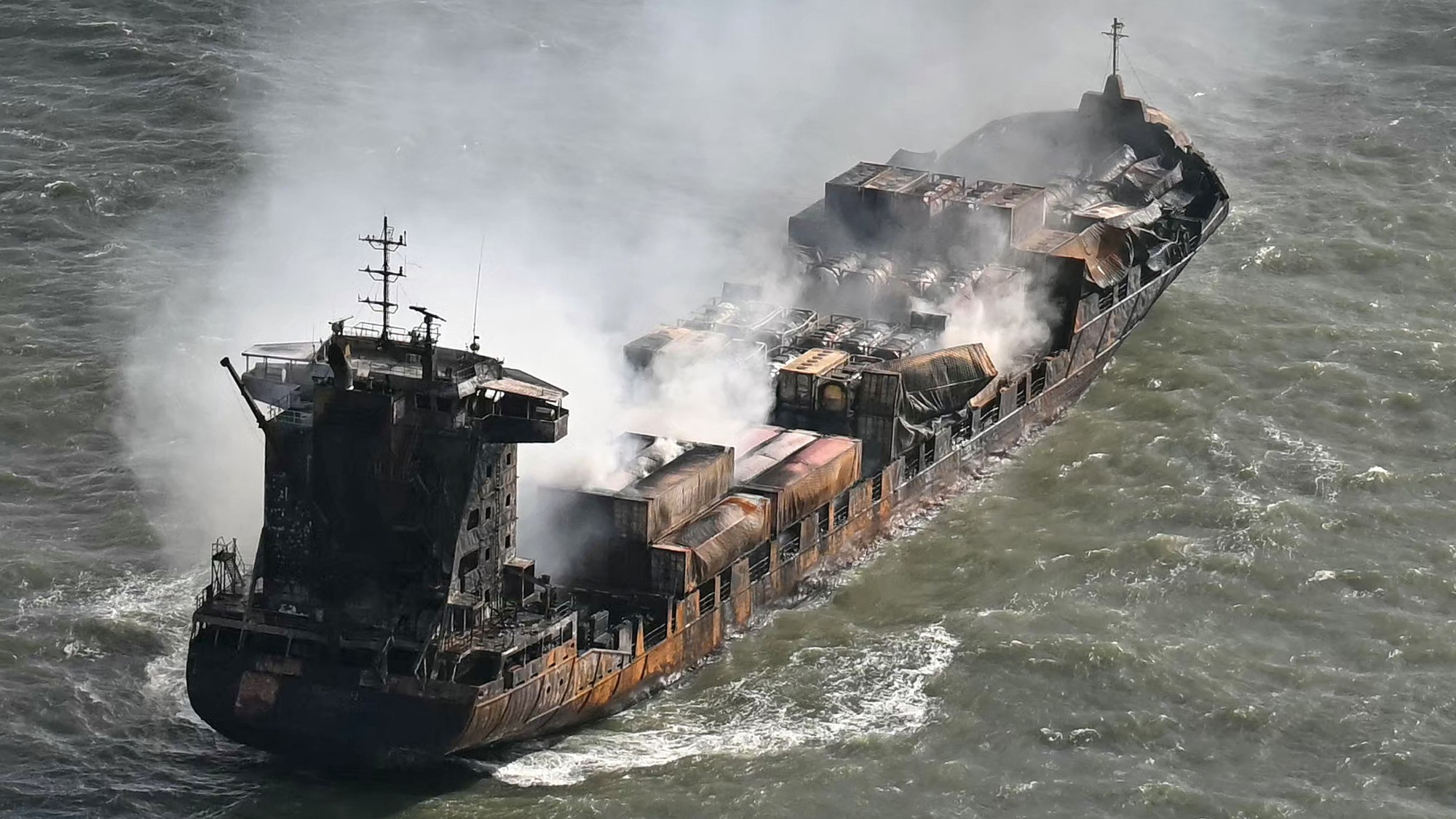 Jet fuel risk: what effect will North Sea tanker crash have on environment?
Jet fuel risk: what effect will North Sea tanker crash have on environment?Today's Big Question Collision area has massive populations of seabirds, such as puffins and gannets, while porpoises and seals breed nearby
-
 How would reaching net zero change our lives?
How would reaching net zero change our lives?Today's Big Question Climate target could bring many benefits but global heating would continue
-
 Starmer vs the farmers: who will win?
Starmer vs the farmers: who will win?Today's Big Question As farmers and rural groups descend on Westminster to protest at tax changes, parallels have been drawn with the miners' strike 40 years ago
-
 Libya: the 'tsunami' that washed away a city
Libya: the 'tsunami' that washed away a cityTalking Point Climate change may have made the storm more likely, but many blame failures of governance for the scale of the tragedy
-
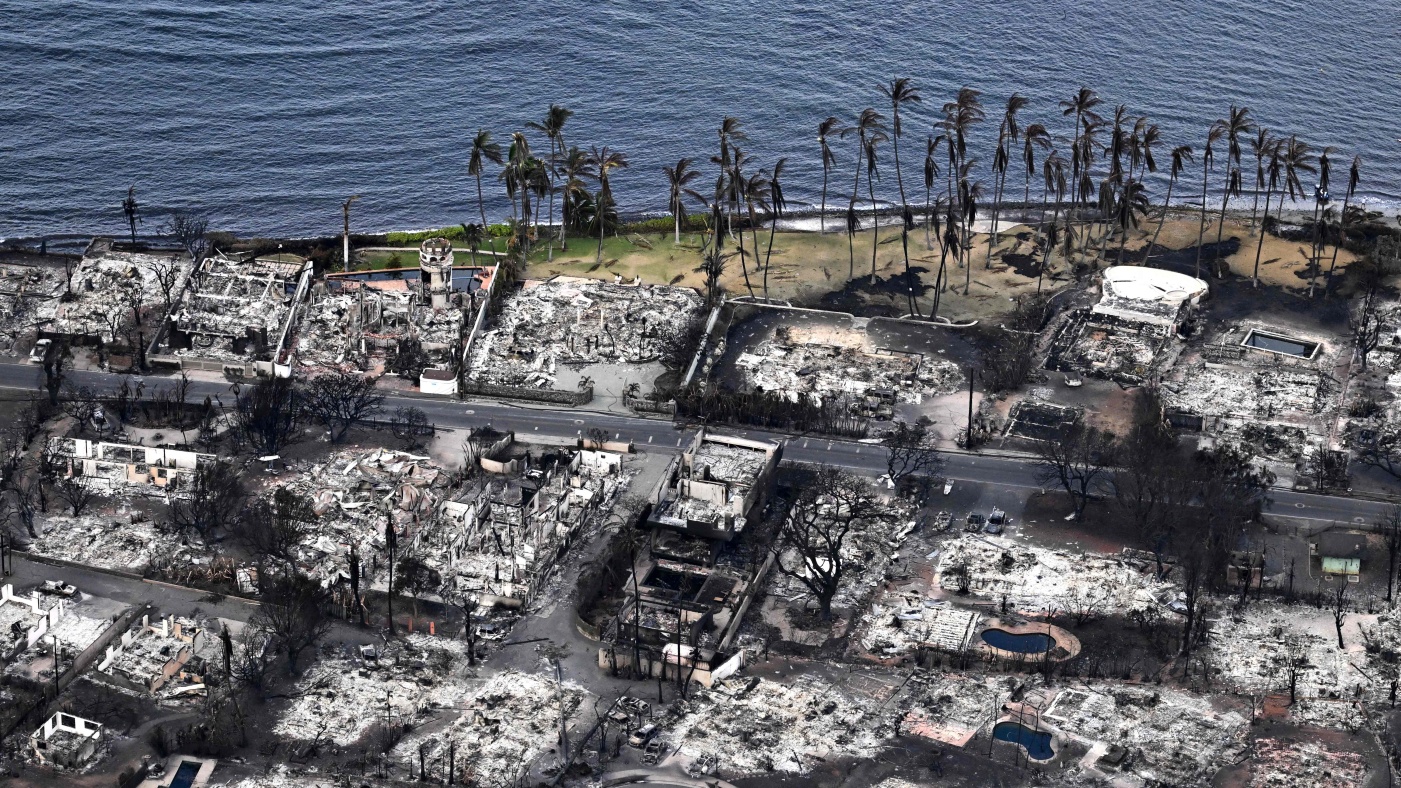 ‘Two Hawaiis now’: holidaymakers warned off wildfire-hit Maui
‘Two Hawaiis now’: holidaymakers warned off wildfire-hit MauiTalking Point Visitors asked to stay away as the Hawaiian island seeks to recover from devastating wildfires
-
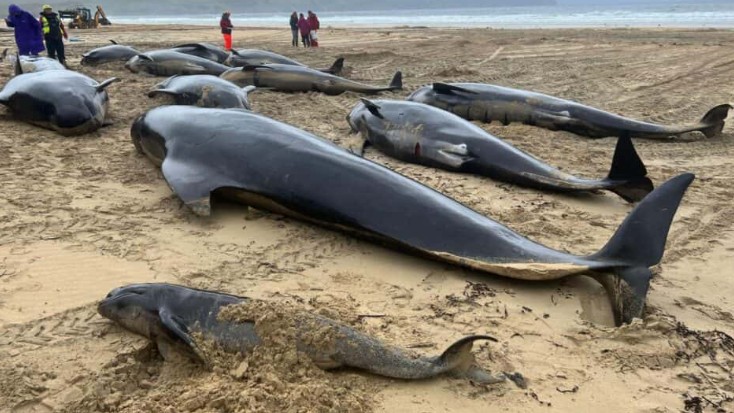 Lewis whale pod post-mortem: what caused Britain’s worst mass stranding for 70 years?
Lewis whale pod post-mortem: what caused Britain’s worst mass stranding for 70 years?Talking Point Whale beachings are on the rise in the UK, but humans aren’t necessarily to blame
-
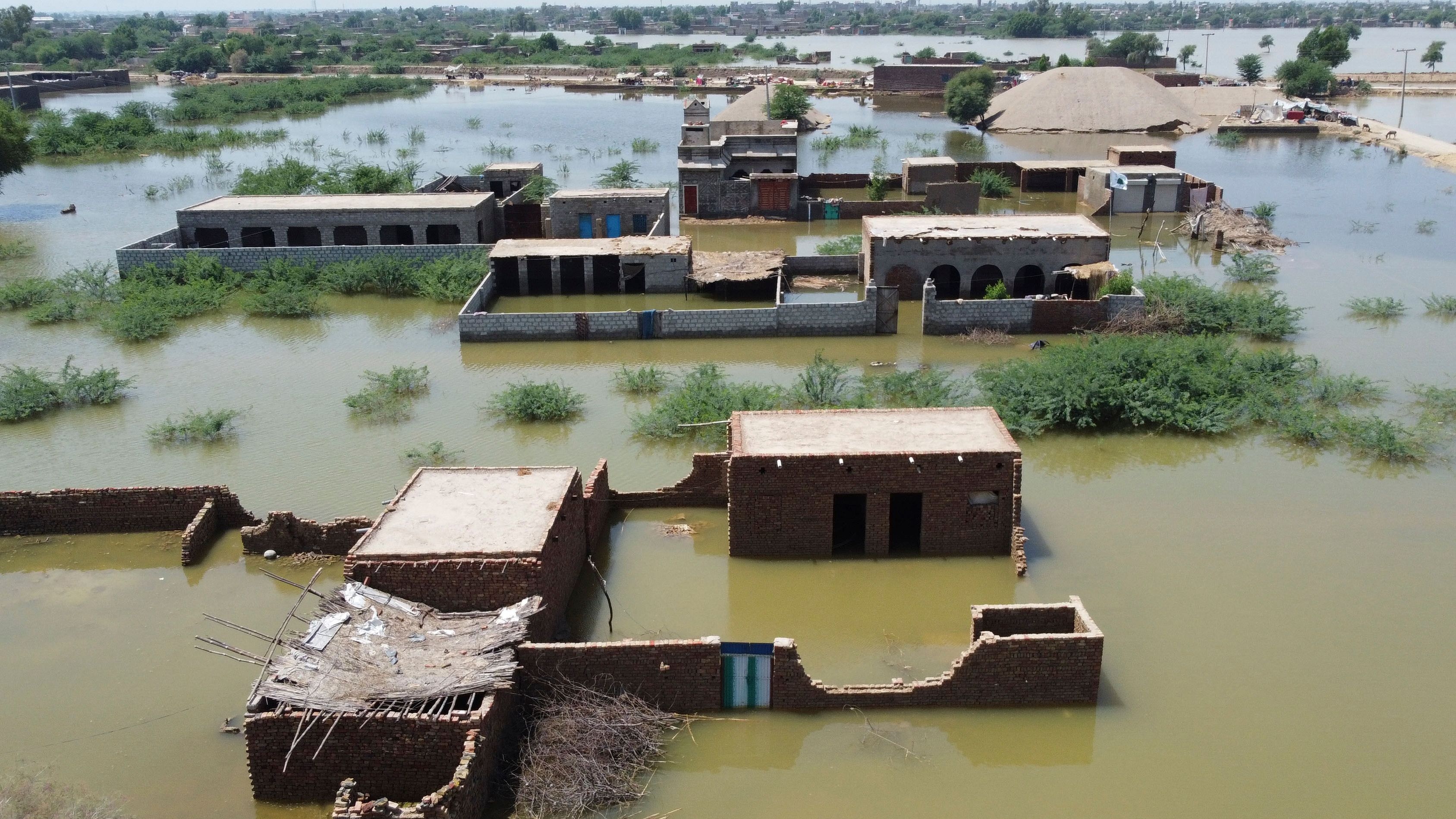 Climate change: is the Earth at a crossroads?
Climate change: is the Earth at a crossroads?Talking Point New Intergovernmental Panel on Climate Change Report shows exceeding 1.5°C of warming would lead to irreversible adverse impacts
-
 Just Stop Oil and the art of protest
Just Stop Oil and the art of protestTalking Point Climate activists have been dismissed as ‘tedious’ after attack on Van Gogh work